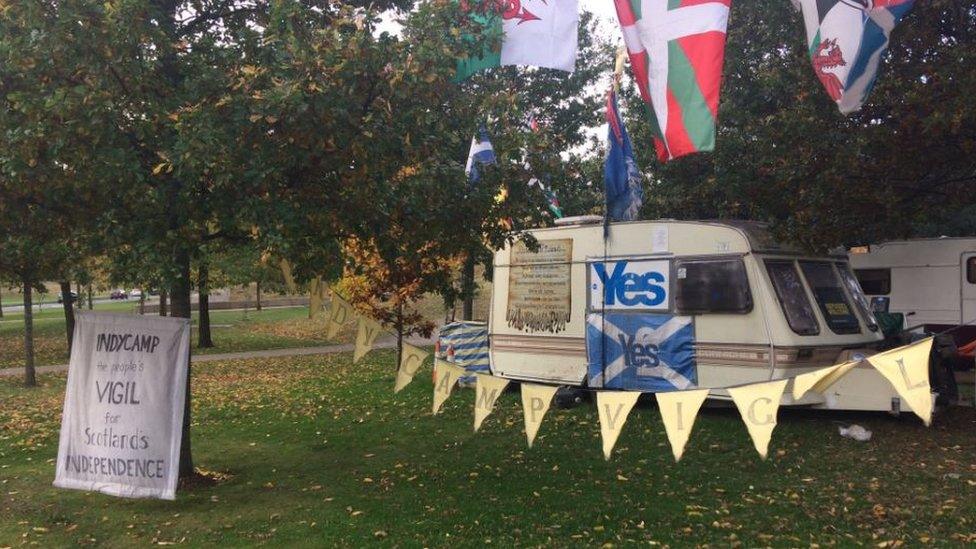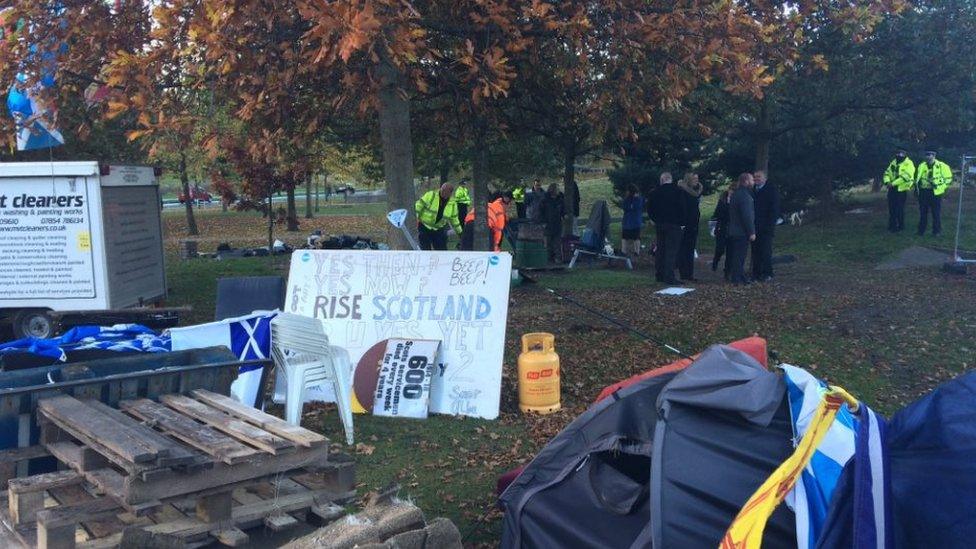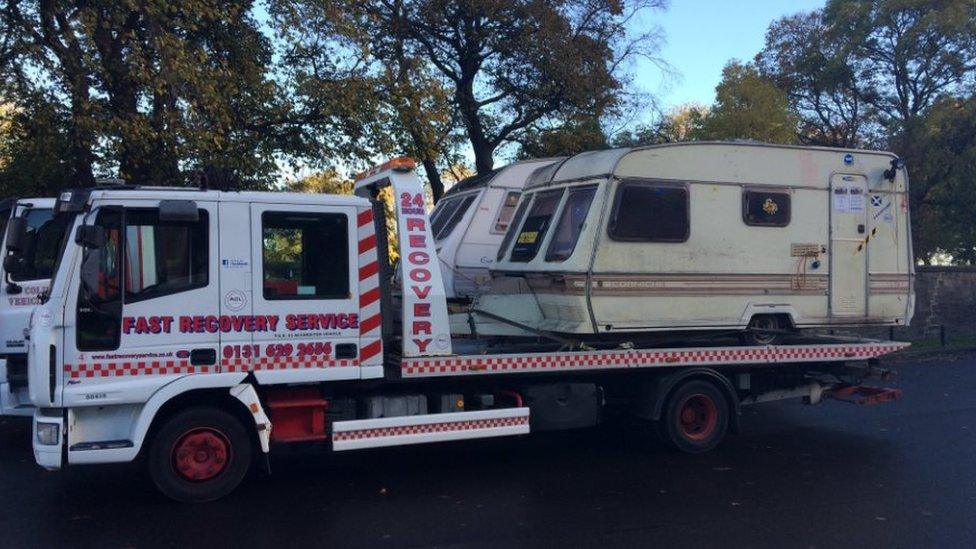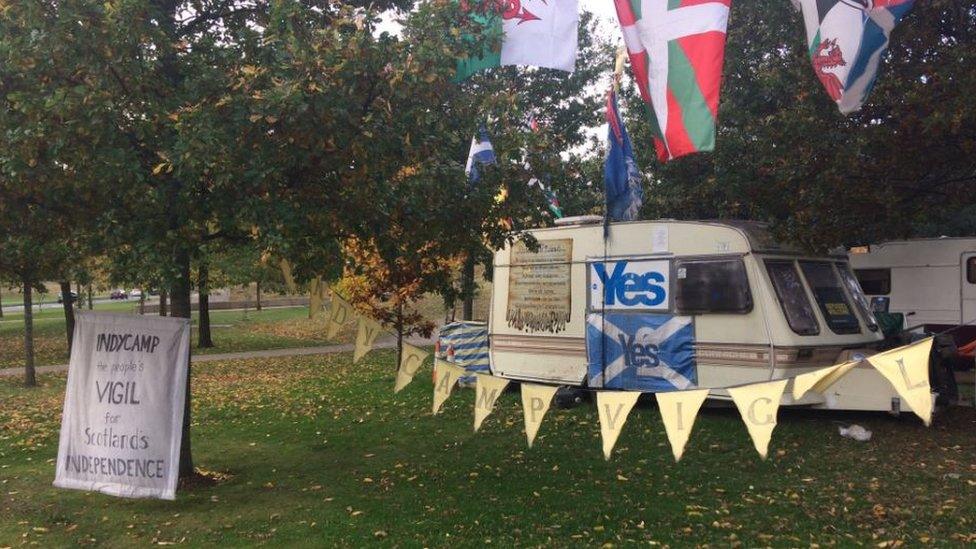IndyCamp group ordered to pay eviction case costs
- Published

The camp was set up outside the Scottish Parliament in November 2015
A group of independence campaigners have been ordered to pay court costs over their eviction from outside the Scottish Parliament.
The IndyCamp group were evicted from their Holyrood camp after 11 months and a lengthy legal case in November.
A panel of judges agreed that the campers were liable for costs.
However, the parliament agreed not to enforce the order until the campers' application for a Supreme Court appeal is settled in the new year.
The camp was set up outside the parliament building in November 2015, with the goal of staying in place until Scotland becomes independent.
'Punitive measure'
The protestors were taken to court by the parliament's corporate body, which argued that they were taking up land that could be used by others and compromising the political neutrality of the Holyrood estate.
Lord Turnbull ruled against the group in the summer after a lengthy legal battle, and his decision was upheld on appeal by the Inner House.
The campers have applied for leave to challenge that ruling in the Supreme Court of the United Kingdom, and a hearing on that will be held in Edinburgh on 10 January.

The camp was evicted after 11 months on the parliamentary estate
In the meantime, the parliament had the group evicted from their camp and put forward a motion to claim costs from the group, citing the cost of the case £105,889.65.
Lady Dorrian, Lord Malcolm and Lord Glennie considered arguments from the parliament's corporate body and the campers at the Court of Session.
Martin Keatings, representing four of the group, said the parliament was using the costs as a "punitive measure" in effect "to teach the respondents a lesson".
He argued that awarding costs would leave the group "destitute", as they "simply don't have the funds to pay" the "unrecoverable amount" sought. He asked the court to refuse the motion or at least mitigate the costs to nil.
'Quite frankly skint'
Another respondent, Richard McFarlane, told the court that he was "quite frankly skint", adding that in any case, Christ had returned to Earth and had absolved the campers from paying any costs.
He said the group had always been in poverty, saying there was no point in "harassing" them for costs.
One campaigner, who asked to be referred to only as "David" in court, put forward a motion questioning the legitimacy of the court and asking Lady Dorrian, Scotland's second most senior judge, to recuse herself.
He said the "treasonous" court had no jurisdiction as the case was not heard in front of a jury, saying he had "vital evidence" that the case as a whole had been "highly unlawful" and the judgement "null and void". His motion was refused."
The parliament's corporate body - which was represented by law firm Brodies, an advocate and a QC during the case - successfully argued that it was the normal legal convention for the losing side in a case to pay the costs.
Lady Dorrian said: "There is no good reason not to grant the motion. Expenses are awarded to the petitioners."
A spokesman for the Scottish Parliament said: "The SPCB has a duty to use public money prudently, and so welcomes today's decision by the court to award expenses in our favour."
- Published16 November 2016

- Published4 November 2016

- Published3 November 2016
